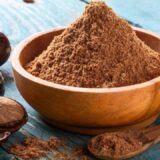Ayurvedic Oils for Hair: List of Top 10 Oils for Hair Growth
In the quest for healthy, vibrant hair, many people turn to various treatments and products, often overlooking the time-tested benefits of natural remedies. Ayurvedic oils have gained popularity for their holistic approach to hair care, addressing not just the symptoms of hair issues but also the underlying causes. 
Rooted in ancient Indian traditions, these oils harness the power of nature to promote hair growth, prevent hair loss, and maintain overall scalp health. The beauty of Ayurvedic oils lies in their diverse formulations, each tailored to meet specific hair concerns.
From nourishing dry strands to soothing irritated scalps, these oils are rich in essential nutrients that strengthen hair from the roots. Regularly massaging these oils into the scalp not only stimulates blood circulation but also provides deep nourishment, fostering an environment conducive to healthy hair growth.
Benefits of Ayurvedic Oils for Hair
Below are some benefits of Ayurvedic oils. These Ayurvedic oils provide essential nourishment, promote growth, and enhance overall scalp wellness.
1. Promotes Hair Growth
Ayurvedic oils are rich in nutrients that stimulate hair follicles, enhancing blood circulation to the scalp. This nourishment encourages faster and healthier hair growth, making hair thicker and more resilient, while also addressing issues like thinning.
2. Reduces Hair Fall and Breakage
Regular use of Ayurvedic oils helps to strengthen hair strands, reducing the likelihood of breakage. By nourishing the roots, these oils minimize hair fall and promote overall hair density, contributing to a fuller appearance.
3. Enhances Scalp Health
Ayurvedic oils often possess antifungal and antibacterial properties, which help maintain a clean and healthy scalp. A nourished scalp promotes better hair growth and reduces issues such as irritation and inflammation, leading to a balanced environment for hair development.
4. Prevents Dandruff and Dryness
Many Ayurvedic oils provide deep moisture to the scalp, combating dryness and flakiness. Their soothing properties help reduce dandruff, ensuring a healthy environment for hair to thrive, and preventing potential scalp-related issues that can hinder growth.
5. Strengthens Hair and Improves Texture
These oils penetrate deeply into the hair shaft, providing essential nutrients that strengthen each strand. Regular application can lead to improved texture, making hair smoother, shinier, and more manageable, which enhances overall hair appearance and health.
Are Ayurvedic Oils Good for Hair Growth?
Ayurvedic oils play a crucial role in promoting hair growth through their natural formulations, which are rich in essential vitamins, minerals, and antioxidants. These oils not only nourish the hair but also strengthen it from the roots, contributing to robust and vibrant hair.
The holistic approach of Ayurveda emphasizes the importance of balance and well-being, making these oils a favored choice for those seeking effective hair care solutions. Research supports the efficacy of Ayurvedic oils in addressing hair loss.
A notable study published in the Journal of Ayurveda and Integrative Medicine reported that a 25-year-old patient suffering from alopecia—characterized by patchy hair loss—experienced significant regrowth within just 15 days of undergoing Ayurvedic oil therapy. This case underscores the potential of Ayurvedic treatments to rejuvenate hair health and combat various forms of hair loss.
Top 10 Ayurvedic Oils for Luscious Hair
In a world filled with synthetic products that promise quick results, Ayurvedic oils offer a more natural, sustainable approach to hair care.
With a plethora of options available, choosing the right oil can be a transformative experience for your hair. Let’s explore some of the most effective Ayurvedic oils and how they can help you achieve the luscious locks you’ve always desired.
1. Bhringraj Oil
Bhringraj oil is derived from the Bhringraj plant, often referred to as the “king of herbs” for hair. This oil is rich in vitamins such as E and D, as well as essential minerals, which nourish the scalp and hair follicles deeply. It also has anti-inflammatory and antioxidant properties that help maintain a healthy scalp environment.
- Benefits for Hair Health: Bhringraj oil promotes hair growth by stimulating hair follicles and improving blood circulation. It effectively prevents hair loss and combats premature graying by enhancing melanin production. Additionally, it improves overall scalp health by reducing dryness and flakiness, leading to stronger, healthier hair.
2. Amla Oil
Made from the Indian gooseberry, Amla oil is a potent source of vitamin C, antioxidants, and essential fatty acids. Its nourishing properties make it a cornerstone of Ayurvedic hair care practices, celebrated for its ability to enhance hair vitality.
- Benefits for Hair Health: Amla oil strengthens hair from root to tip, enhances shine, and promotes thicker hair growth. It nourishes the scalp, preventing dryness and dandruff, while also protecting hair against environmental damage. Regular use can lead to improved hair texture and overall health, making it more resilient against breakage.
3. Brahmi Oil
Brahmi oil is derived from the Bacopa monnieri plant, known for its calming effects on the mind and body. This oil enhances mental clarity and relaxation, which can indirectly benefit hair health by reducing stress-related hair loss.
- Benefits for Hair Health: Brahmi oil strengthens hair roots and improves blood circulation to the scalp, ensuring that hair follicles receive essential nutrients. It nourishes the scalp, preventing dryness and irritation. By reducing stress levels, it also helps maintain a healthy growth cycle for hair.
4. Neem Oil
Extracted from the seeds of the neem tree, neem oil is renowned for its potent antifungal and antibacterial properties. Its medicinal qualities have made it a staple in traditional Ayurvedic practices for skin and hair care.
- Benefits for Hair Health: Neem oil effectively treats dandruff, scalp infections, and other scalp issues due to its antimicrobial properties. By promoting a clean and healthy scalp, it creates an ideal environment for hair growth. It also helps reduce hair fall by strengthening the roots and providing essential nutrients.
5. Coconut Oil
Coconut oil is derived from the meat of coconuts and is celebrated for its versatility and rich fatty acid profile. It acts as a natural moisturizer and is easily absorbed by the hair, providing numerous benefits.
- Benefits for Hair Health: Coconut oil prevents breakage and split ends by deeply conditioning the hair shaft and reducing protein loss. It enhances shine and smoothness, making hair more manageable. Its antifungal properties also help maintain a healthy scalp, contributing to overall hair health.
6. Sesame Oil
Sesame oil, derived from sesame seeds, is rich in vitamins E and B, along with essential fatty acids. Its light texture allows it to penetrate the hair and scalp easily, making it highly effective for nourishment.
- Benefits for Hair Health: Sesame oil nourishes the scalp and promotes healthy hair growth while protecting against environmental damage. It enhances overall hair shine and improves elasticity, helping to reduce breakage. Regular use can lead to softer, healthier hair that is easier to style.
7. Hibiscus Oil
Made from vibrant hibiscus flowers, hibiscus oil is known for its nourishing and revitalizing properties. It is rich in vitamins, amino acids, and antioxidants that support hair health.
- Benefits for Hair Health: Hibiscus oil promotes thicker hair growth and prevents split ends, while its natural properties enhance shine and softness. It nourishes the hair follicles and helps maintain scalp health, making it an excellent choice for revitalizing dull or damaged hair.
8. Castor Oil
Thick and rich, castor oil is derived from the seeds of the castor plant and is renowned for its unique composition. It contains ricinoleic acid, which has anti-inflammatory properties that benefit the scalp.
- Benefits for Hair Health: Castor oil stimulates blood circulation in the scalp, encouraging hair growth and improving thickness. Its fatty acids provide deep hydration, which reduces hair fall and promotes overall hair strength. Additionally, it can enhance the luster of hair, making it appear healthier.
9. Fenugreek Oil
Extracted from fenugreek seeds, this oil is known for its diverse benefits, including its rich content of proteins and nicotinic acid. These components are vital for maintaining healthy hair and scalp.
- Benefits for Hair Health: Fenugreek oil nourishes hair follicles, promoting strong growth and reducing hair fall. It combats dandruff and soothes scalp irritation, creating a healthy environment for hair development. Regular use can lead to improved texture and shine.
10. Almond Oil
Derived from sweet almonds, almond oil is light and easily absorbed, making it suitable for various hair types. It is rich in vitamin E, magnesium, and essential fatty acids, contributing to its nourishing properties.
- Benefits for Hair Health: Almond oil nourishes and strengthens hair, enhancing shine and reducing breakage. It provides essential moisture to the hair and scalp, making hair softer and more manageable. Regular application supports overall hair vitality and promotes healthy growth.
How to Use Ayurvedic Oils for Hair
Recommended Application Methods
- Direct Application: Warm the Ayurvedic oil slightly and apply it directly to the scalp and hair. Use your fingertips to ensure even distribution, focusing on the roots and ends.
- Pre-Wash Treatment: Apply the oil to your hair and scalp at least 30 minutes before washing. This pre-wash treatment helps to nourish and protect hair during cleansing.
- Overnight Treatment: For deeper conditioning, apply the oil before bedtime and leave it on overnight. Cover your hair with a shower cap to prevent staining and wash it out in the morning.
Frequency of Use
- For Regular Maintenance: Use Ayurvedic oils 1-2 times a week for ongoing hair health and nourishment. This frequency helps maintain moisture and strengthen hair.
- For Intensive Care: If dealing with specific issues like hair loss or scalp problems, increase usage to 3-4 times a week until improvement is seen, then reduce to a maintenance routine.
Tips for Effective Massage and Absorption
- Scalp Massage: Use circular motions with your fingertips while applying the oil to stimulate blood circulation. This not only helps with absorption but also promotes relaxation and relieves stress.
- Combining Techniques: Incorporate gentle tugging and pulling motions to help distribute the oil evenly and ensure that it penetrates the hair shaft effectively.
- Heat Enhancement: For better absorption, consider using a warm towel wrapped around your head after oil application. The heat opens the hair cuticles, allowing for deeper penetration of the oil.
- Leave-in Option: After massaging, if desired, you can leave a small amount of oil on your hair as a leave-in conditioner to provide ongoing moisture and shine throughout the day.
Additional Hair Care Tips
Complementing Oils with a Balanced Diet
- Nutrient-rich foods: Incorporate foods high in vitamins, minerals, and healthy fats, such as leafy greens, nuts, seeds, and fatty fish. These nutrients support hair health from the inside out.
- Hydration: Drink plenty of water to keep your body and hair hydrated. Proper hydration helps maintain hair elasticity and prevents dryness and brittleness.
- Protein Intake: Include adequate protein in your diet, as hair is primarily made of keratin. Foods like eggs, beans, and lean meats can promote strong and healthy hair growth.
Avoiding Harsh Chemicals and Heat Styling
- Gentle Products: Choose sulfate-free shampoos and conditioners that are gentle on your hair and scalp. Harsh chemicals can strip natural oils and lead to damage.
- Limit Heat Exposure: Reduce the use of heat styling tools like straighteners and curling irons. When necessary, use a heat protectant spray to minimize damage.
- Natural Alternatives: Explore natural styling alternatives, such as braiding or air-drying, to avoid the harmful effects of heat and chemical treatments.
Importance of Regular Hair Care Routines
- Consistency is Key: Establish a regular hair care routine that includes oiling, washing, and conditioning. Consistency helps maintain hair health and promotes growth over time.
- Scalp Care: Don’t neglect your scalp; ensure it’s clean and well-nourished. Regular scalp massages with oils can enhance circulation and promote healthy hair follicles.
- Trim Regularly: Schedule regular trims to remove split ends and breakage. This not only keeps hair looking healthy but also encourages faster growth by preventing damage.
FAQs
1. What are Ayurvedic oils?
Ayurvedic oils are natural oils derived from herbs and plants, used in traditional Ayurvedic medicine to promote health and well-being. They are known for their therapeutic properties and benefits for hair and scalp health.
2. How do Ayurvedic oils promote hair growth?
Ayurvedic oils nourish hair follicles, improve blood circulation to the scalp, and provide essential nutrients that stimulate hair growth while reducing hair fall and breakage.
3. How often should I use Ayurvedic oils on my hair?
For general maintenance, it is recommended to use Ayurvedic oils 1-2 times a week. If you’re addressing specific issues like hair loss or scalp problems, you can increase usage to 3-4 times a week.
4. Can Ayurvedic oils help with dandruff?
Yes, many Ayurvedic oils, such as neem and bhringraj oil, have antifungal and antibacterial properties that help combat dandruff and soothe scalp irritation.
5. Are there any side effects of using Ayurvedic oils?
Generally, Ayurvedic oils are safe for most people. However, it’s important to do a patch test before applying a new oil to check for any allergic reactions.
6. Can I use Ayurvedic oils on oily hair?
Yes, Ayurvedic oils can be beneficial for all hair types, including oily hair. Just be sure to use them in moderation and wash thoroughly after application.
7. What are the best ways to apply Ayurvedic oils?
You can apply Ayurvedic oils directly to the scalp and hair, use them as a pre-wash treatment, or leave them on overnight for deeper conditioning. Massaging the scalp enhances absorption and stimulates circulation.
8. Should I combine different Ayurvedic oils?
Yes, combining different Ayurvedic oils can provide a broader range of benefits. Just ensure that the oils you choose complement each other in terms of properties and effects.
9. Can Ayurvedic oils help with hair loss?
Yes, many Ayurvedic oils are specifically formulated to strengthen hair roots, improve circulation, and nourish the scalp, making them effective in reducing hair loss.
10. Where can I find quality Ayurvedic oils?
You can find quality Ayurvedic oils at health food stores, specialty Ayurvedic shops, or online retailers. Look for cold-pressed, organic options for the best quality.
Incorporating Ayurvedic oils into your hair care routine can provide numerous benefits, from promoting growth to enhancing scalp health. These natural oils, rich in essential nutrients and therapeutic properties, offer a holistic approach to hair care.
Resources:
- A clinical investigation on the safety and effectiveness of an ayurvedic hair oil in controlling hair fall (khalitya) in healthy adult human subjects: a study on hair fall management. (1)
- Hair Oils: Indigenous Knowledge Revisited(2)

























